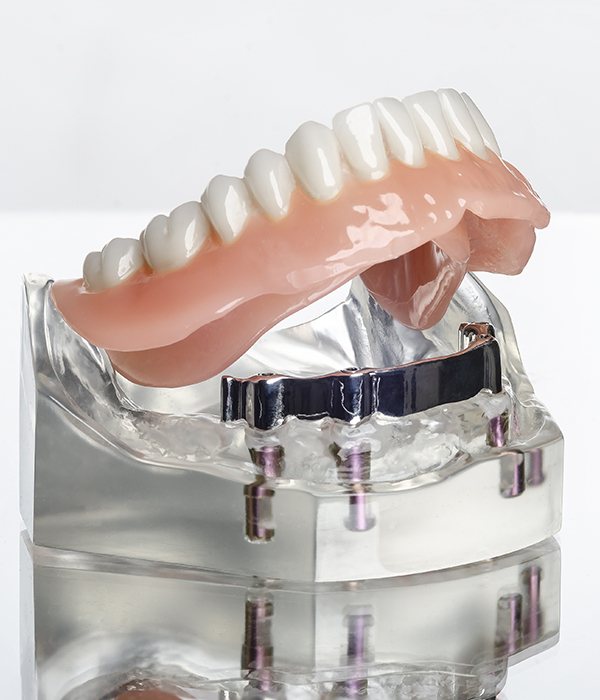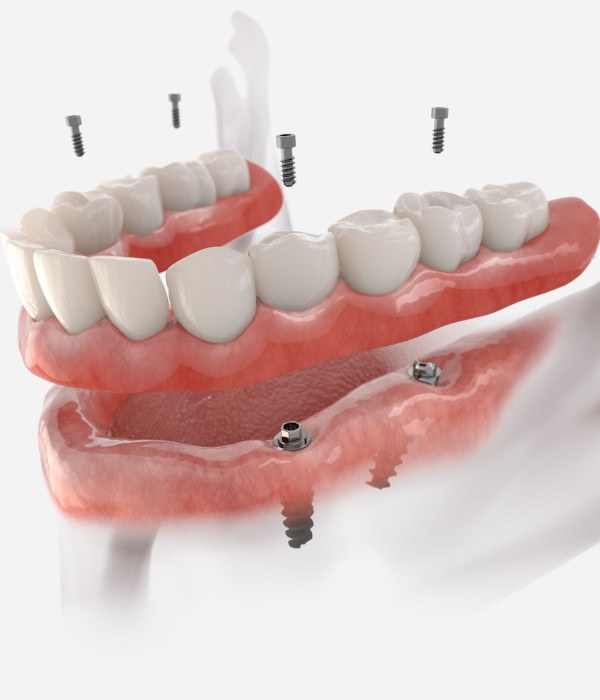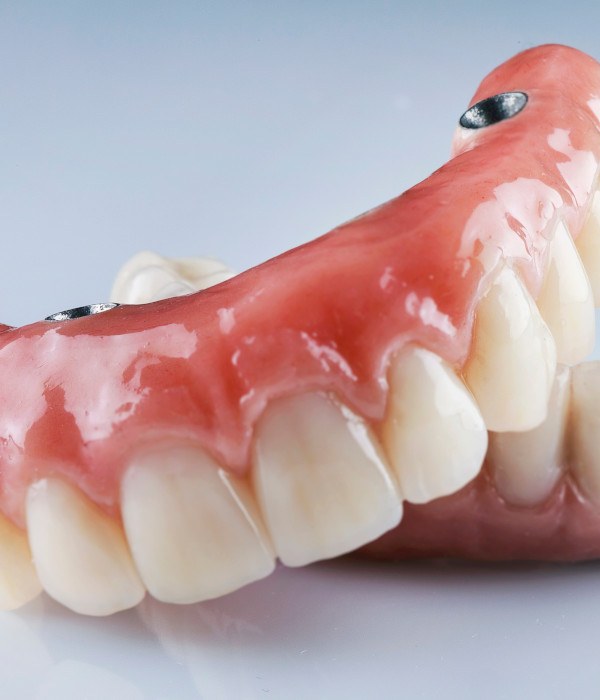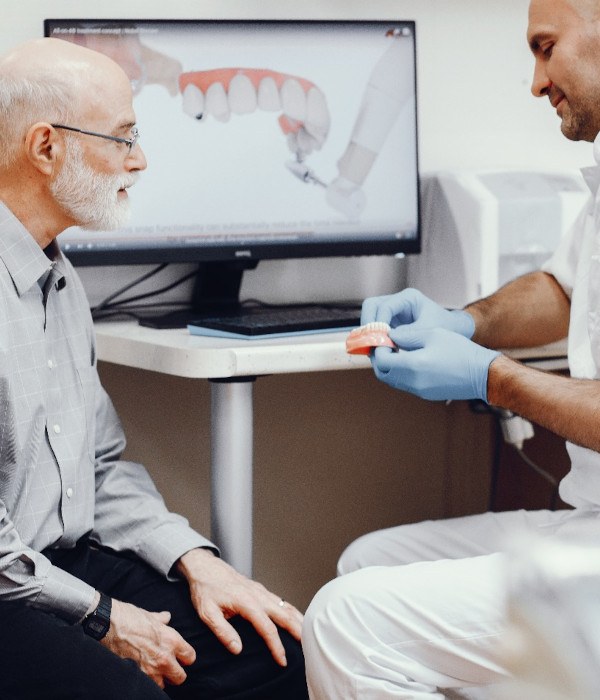
Implant Dentures – Colorado Springs, CO
New Teeth that Stay Put

If you are missing all your teeth on the top or bottom arch, you are not alone. In fact, it is estimated that 36 million adults in the United States are missing all their natural teeth. To restore your oral function, you have probably tried traditional dentures; however, they just do not feel natural. What if you could replace them with new teeth that actually stay put? Now you can with implant dentures. Would you like to learn more about this potentially lifechanging treatment? Continue reading below to discover some important facts, and then contact Rocky Mountain Periodontal Specialists in Colorado Springs to request a consultation.
Why Choose Rocky Mountain Periodontal Specialists for Dental Implant-Retained Dentures?
-
Long-Lasting Implants
That You Can Trust -
Sedation Available for
Anxious Patients -
3 Highly Experienced
Periodontists
What Are Implant Dentures?

Implant dentures have quickly become the most preferred solution to treat complete tooth loss. Implant posts, also called dental implants, are surgically placed into the jawbone. A custom-made arch of replacement teeth is then attached to them. With the implant post securely holding the denture in place, you do not have to worry about slipping, irritation, or discomfort. You can smile, speak, and chew with confidence knowing that your new smile will stay firmly in place.
There are two main categories of implant dentures:
Fixed/Permanent Implant Dentures

As their name suggests, fixed implant dentures are permanently attached to the implants that support them. They can only be removed by a dental professional. Many patients choose this option because they like the idea of having their teeth in their mouth 24/7.
Removable Implant Dentures

Removable implant dentures snap onto and off of small attachments on their supporting implants. This allows for easy oral hygiene. Removable implant dentures also require fewer implant posts than their fixed counterparts, so they are often suitable for people who have lost some bone density in their jaw.
The Implant Denture Procedure

The implant denture procedure involves four main steps:
- We will learn about the details of your case and start planning your custom treatment process.
- Implant placement. Our periodontists have all the skills necessary to place implant posts at their ideal locations in the jawbone.
- Over the course of a few months, your implants will bond with your jawbone.
- Your beautiful new denture will be attached to your implants.
The implant denture procedure can seem lengthy and complex when compared to the process for traditional dentures. However, the end results are well worth it!
Am I a Candidate for Implant Dentures?

Generally, if you suffer from tooth loss and have good oral health, you are a candidate for the procedure. However, the density of your jawbone is also important. It must be thick enough to adequately support the implant posts.
To ensure that your bone density is suitable, it is best to see a periodontist. Not only do they specialize in the treatment of gum disease, but they also have extensive knowledge of the structures of the face and jaw. This will help to promote the ideal placement of the posts for a new smile that can potentially last for a lifetime.
If you have decreased bone density, do not worry. You may still be a candidate for the procedure with additional treatment. Bone grafting can be used to thicken and fortify your jawbone.
In addition to your oral health and your bone density, your medical and lifestyle history will also need to be discussed. With infection being the biggest threat for implant failure, there should not be any medical conditions or habits that significantly increase your risk of infection.
Benefits of Combining Dentures & Dental Implants

Implant dentures offer some remarkable benefits:
- Jawbone preservation. Dental implants stimulate the jawbone, helping it to stay strong and whole.
- A strong bite. The bite force offered by implant dentures is much stronger than that of traditional dentures.
- Natural look and feel. You will be able to smile with confidence and enjoy easy function from your new teeth.
- Easy maintenance. Thorough oral hygiene, routine dental visits, and other simple steps can keep your implant dentures in good shape for many years.
- Dental implants often last a lifetime. The restorations on top of them also have a long life expectancy.